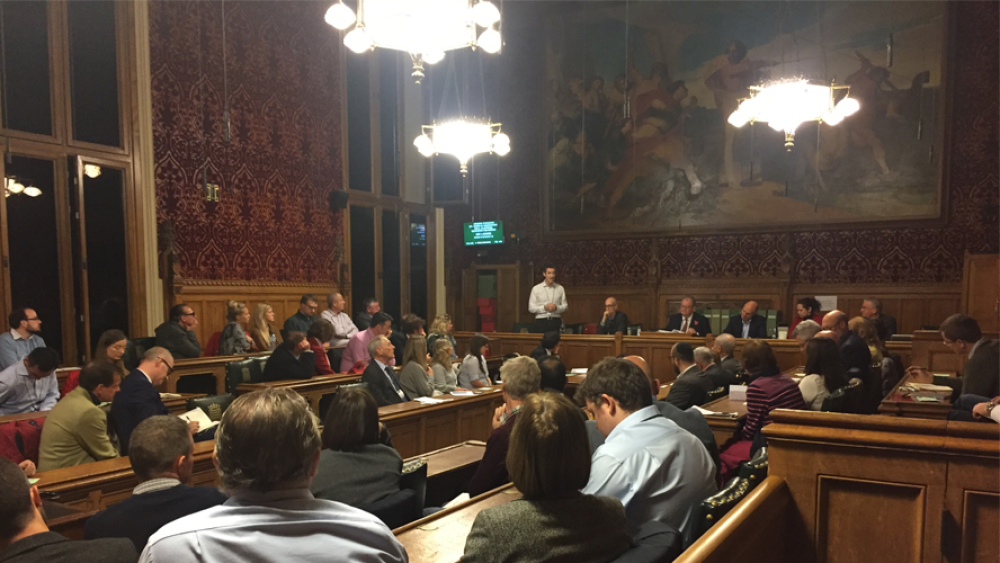The Great Debate
31 Oct 2017

The Palace of Westminster. The Mother of Parliaments. The great data debate – is protecting customers' data a core aspect of what makes a business successful?
It’s a great question. Essentially, is the protection of data where businesses pivot between success and failure?
On the surface it seems possible. But does it trump other factors like brand, product, price and so on?
To discuss, the DMA invited speakers and guests to the House of Commons committee room 10. The location, we were told, political parties had elected and deposed on their leaders and even Prime Ministers in days gone-by.
Introduced by marketing man of the people Andrew Marsden, a veteran of agencies and corporations like Unilever, we explored marketing today.
Speaking first, in favour of the proposition, was DMA chair Mark Runacus, who spoke passionately about the volume of data available, but also the consequences of mismanaging data. There are potential dangers for brand, for compliance and for trust.
He argued that protection of data is now the supreme consideration for brands because the insights available are so rich and so important, and because the consequences for mismanagement are so dire.
Speaking against was Richard Robinson, formerly of Google and Turn, now of Cambridge Analytica, who was happy to acknowledge the importance of data.
But to suggest that data trumps other factors? No no no, he said.
He said data protection could turn out to be the most crucial factor for business, but we’re not there yet, and actually might never get there. Other considerations are as important or more important, or perhaps the combination of reasons makes an underlying 'reason' too complicated to pin down.
Seconding the proposition was Sacha Wilson, senior associate at legal firm Bristows. He raised the spectre of the GDPR, which comes into force in a little over six months. He said compliance with the GDPR will change the rules. Maximum fines of £500,000 under the current system will rise to €20 million, which he said was, “unprecedented in law,” and designed specifically to make data protection the place where businesses pivot. If we’re not there already, with such little time to go, we should be.
The final speaker, against the proposition, was Department for Change founder Debi Bester who said a successful company has to protect the personal data it holds about its customers but it’s not core to success. Protecting data is a hygiene factor, part and parcel of being in business. She said talented people were the core of what makes a business successful. The way individuals interpret data will be significant, and more important than protecting that data, she said.
There the arguments sat, coming down to whether the protection of customer data is the determining factor for businesses today.
Speakers from the floor introduced their thoughts.
In general, speakers took against the proposition, with Tim Drye perhaps giving the most vivid metaphor. If business are like bicycles, then data protection is the lock. You don’t need the lock to enjoy a good cycle, he said.
Final speeches, there to address the many points raised from the floor, succinctly summarised the arguments on both sides.
Then to vote.
The initial vote suggested a win by the proposers. A steward’s inquiry and recount showed that votes had been mislaid. And in Parliament.
On the second count the result was the same, but the margin narrower. The proposition had it by a single vote, 36 votes to 35.
Many attributed the success to a spirited and impassioned summing up by Mark Runacus.
So there we have it – protecting customers’ data really IS the core aspect of what makes a business successful.
The electorate has spoken.
Please login to comment.
Comments